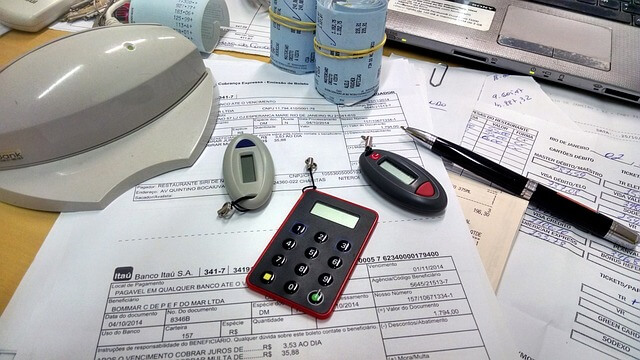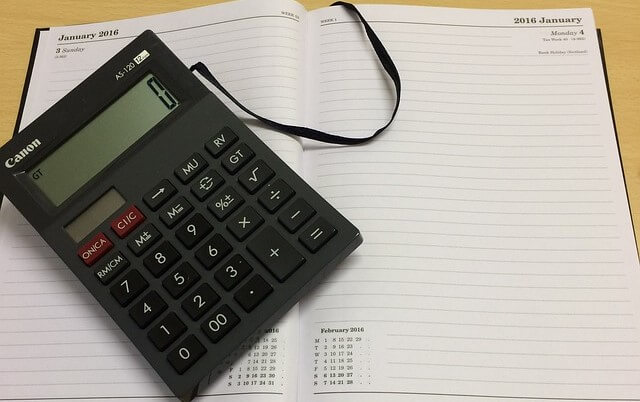Financial accounting enables a business or enterprise to keep a record of money-related transactions, including expenses and profits. Certain accounting terminologies are used to describe the different kinds of financial transactions.
What are Accounting Terminologies?
Also called financial terms, these are the words or phrases that best describe the various financial transactions. These terms also help one become familiar with what goes on within the business ecosystem, as well as make the comprehension of numbers better.
Top 21 Accounting Terms You Should Know
From allocation to balance sheet and bookkeeping; several terms help in breaking down the concept of financial accounting. Find out their meanings below.
1. Allocation
When funds or money is allocated; it means that it has been set aside for a specific (financial) use. Allocating money is usually done ahead of time and usually added to a budget. That way, the business maps out an amount for a specific use and uses the money, when approved, for that purpose.
Also Read: The Impact of Tax Evasion and Tax Avoidance in Nigeria’s Economy
2. Assets
This is a resource or property owned by a company or business. Just like profit and loss, asset is one of the most common accounting terminologies. Here are a few things you need to know about assets:
State of the Assets
There are two (2) major types of assets:
- Current: these are assets consumable or usable within a year.
- Non-Current: these assets can be held and used beyond a year.
Liquidity Levels
Liquidity has to do with the ease of sourcing money or capital by way of putting up assets for sale. While you can easily trade off some assets, others may not have the same kind of liquidity.
Cash is an example of a liquid asset because it can be spent. This is unlike a property, which must first be put up for sale (listed), sold and cash gotten.
3. Balance Sheet
Want to know the financial standing of a business? Check its balance sheet. This is a financial statement detailing a company or business’s financial transactions.
What can you find in a balance sheet?
- All the assets are controlled by the business.
- Liabilities
- Equity is obtained after calculating the amount left for the owners.
4. Bank Statement
This is a periodic (monthly) statement that a business receives from the bank. It is usually the financial transactions within the period and how much is left.
5. Bookkeeping
This is one of the most important financial accounting terms, as it has to do with the recording of financial transactions often in an accounting system.
6. Capital
This is the money a business can use at any point in time to scale operations. You can also use capital for other purposes, including acquiring new businesses or taking over existing ones.
7. Cash Flow
Cash flow refers to the amount of money a company receives or loses over a specific time. Usually, a business anticipates a specific amount of money to flow in. Understandably, the company will use this inflow for important purposes.
8. Cost of Goods Sold
When a business is calculating its finances, it also factors in the Cost of Goods Sold (COGS). This refers to the amount spent when producing an item. The calculation is usually the cost of materials and labour.
9. Credit
This is an entry made on the right side of a T-account, indicating the increase of liability or the decrease in a company’s expense account or assets.
10. Debit
This is the opposite of credit and entails a decrease in liabilities and an increase in the expense account or asset.
11. Debt
This refers to the amount owed to a business or company. The money owed could be via the provision of a service or unpaid goods. It could also be loans.
12. Debt Retirement
When the services, bonds or money that represent an amount owed are paid off; it is called debt retirement.
13. Depreciation
An accounting term that references the decline in the overall worth of an asset. You can determine what the depreciation is when you compare the previous valuation to the current price.
14. Diversification
This is an accounting term used to highlight the reduction of a business or company’s risk exposure by way of putting money into or investing in a wide range of assets. The idea is that if Asset A doesn’t make good returns, Asset B or C would.
15. Dividends
A Limited Liability Company distributes a part of the profits made to the shareholders. This profit is called a dividend. This money is paid only after the company has offset the taxes, and liabilities and handled all expenses.
16. Equity
This is the difference between liabilities and assets. You can also see it as the business owner’s interest in the company and its financial worth.
17. Expenses
Simply put, this is the money that goes out of a business. Expenses are usually incurred due to the business activities in the cause of service provision and revenue generation.
18. Federal Income Taxes
These are the taxes on the net or annual income of individuals and businesses. You are to remit these monies to the Federal Government through the designated agencies.
Also Read: How to Calculate Value-Added Tax in Nigeria
19. Fiscal Year
This is a consecutive 12-month timeframe during which the financial standings of a company are measured or calculated.
20. Gross Profit
You derive this kind of profit after deducting overhead expenses (including the cost of goods sold) from a company’s profit.
21. Net Profit and Loss
Also called a Profit and Loss (P&L) statement; this is a financial statement detailing the amount of money a business made or lost after deducting the overhead expenses.
Through the P&L statement, you’ll know not just how much revenue was generated, but also the areas or channels that took the most money. This is in addition to having an idea of your business’s ability to generate more and better profits in the future.
Final Words
Knowledge of accounting terminologies helps you understand what you have on the balance sheet. In addition, it also helps you in interpreting figures or entering new ones.
From small businesses to companies, having a robust financial standing is important. Oftentimes, getting a professional to audit your books helps one find out possible loopholes that take the most money out of the business.
Which of these accounting terminologies are you just hearing for the first time? Share with us in the comment section.




